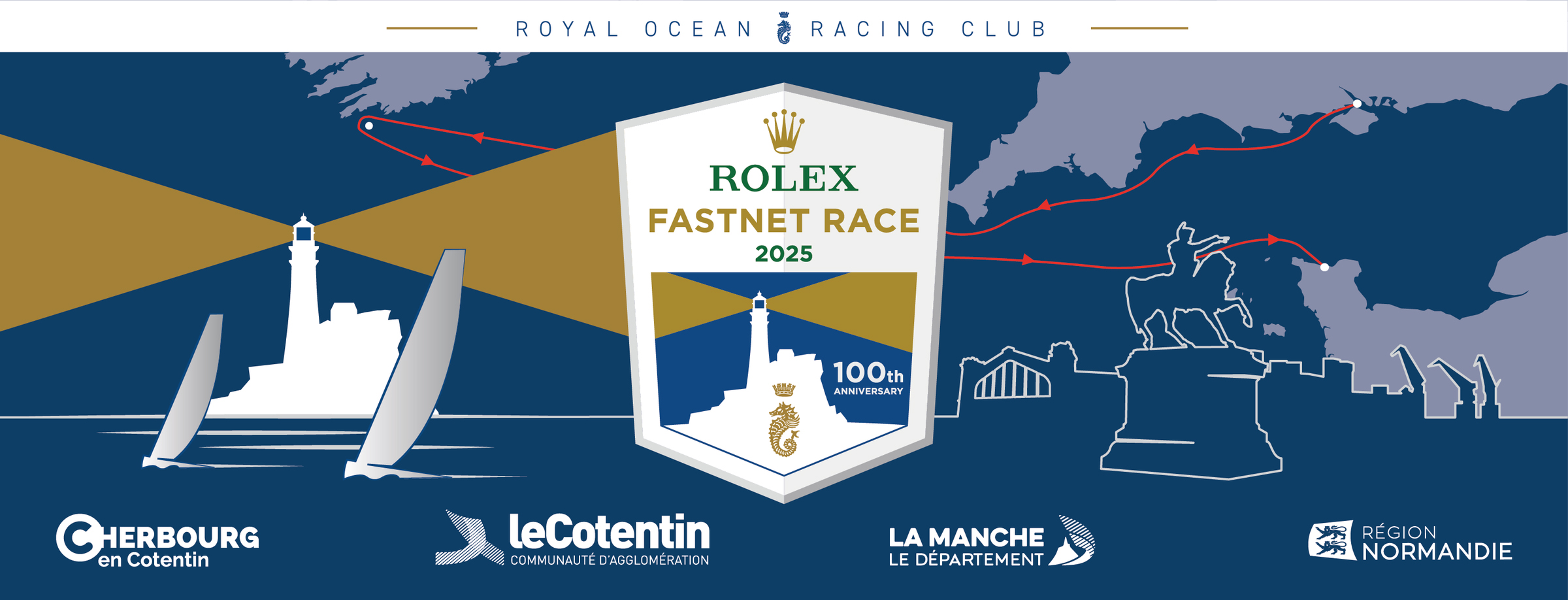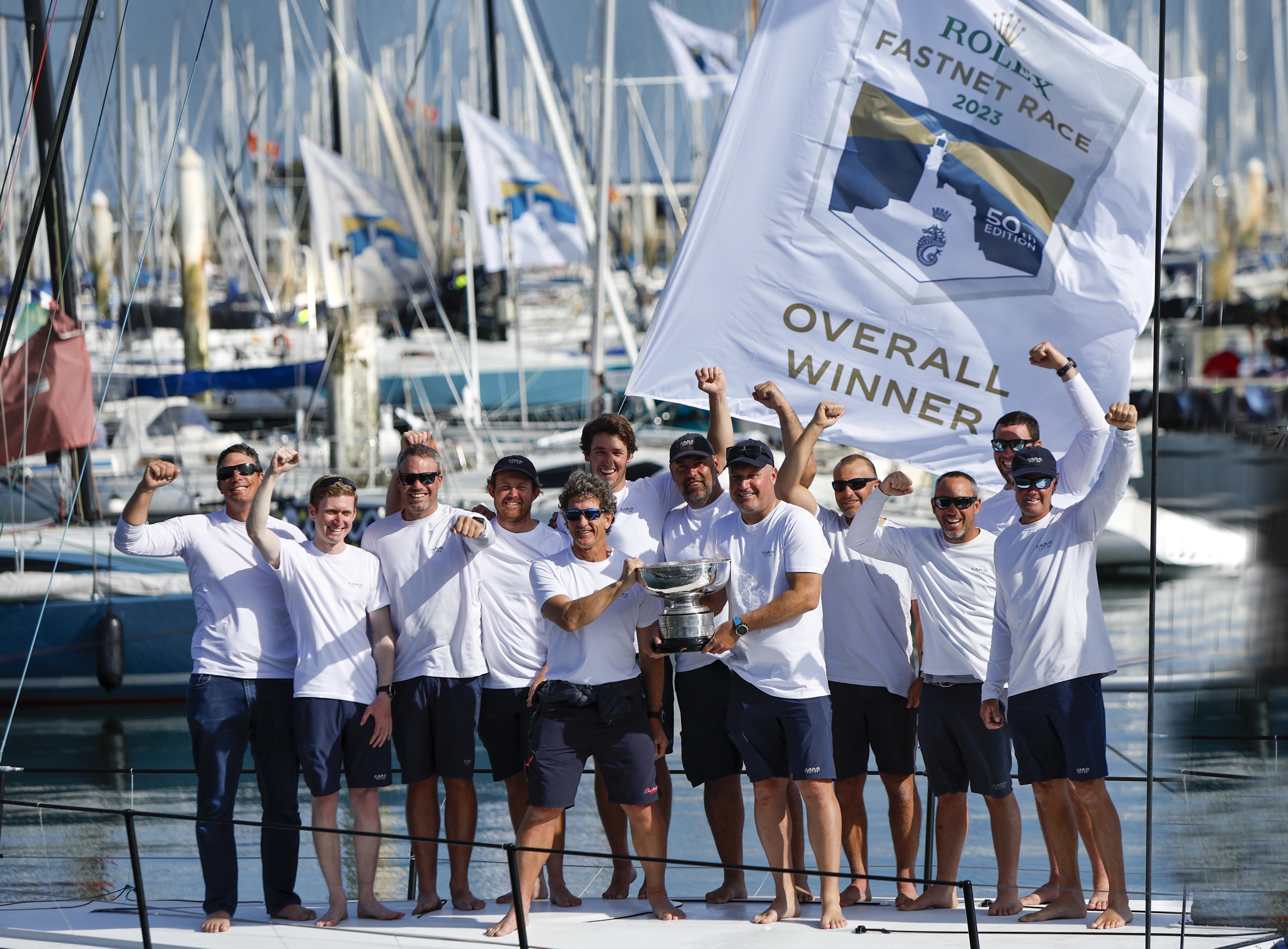

Max Klink’s Botin 52 Caro has been crowned overall winner of the Rolex Fastnet Race. After being confirmed as winner of IRC Zero yesterday, no other boat still racing on the 695 nautical mile course can catch the Swiss boat for overall honours in the 50th edition of the Royal Ocean Racing Club’s offshore classic.
The fact that the opening 12 hours of the race were so bruising, with winds gusting close to 40 knots and boat-breaking seas off the south coast of England, made victory all the sweeter for Klink and his crew of professional sailors as they admired the great names that have gone before them, engraved on the base of the Fastnet Challenge Cup.
“This is a legendary group of sailors who I have been fortunate to sail with for a few years now,” said the Swiss owner, “but when we set out on this race I never expected that we could win. It’s a dream come true, and all the more special that this is the 50th edition of such an iconic race.
“The first 12 hours we were just in survival mode, trying not to break anything, trying to keep the boat at 100 per cent. I wasn’t thinking about any title or trophy, it was just about getting through the conditions.”
Klink used to race a 65-footer but is very happy to have taken a step down in the size range, and arguably a step up in the level of competition.
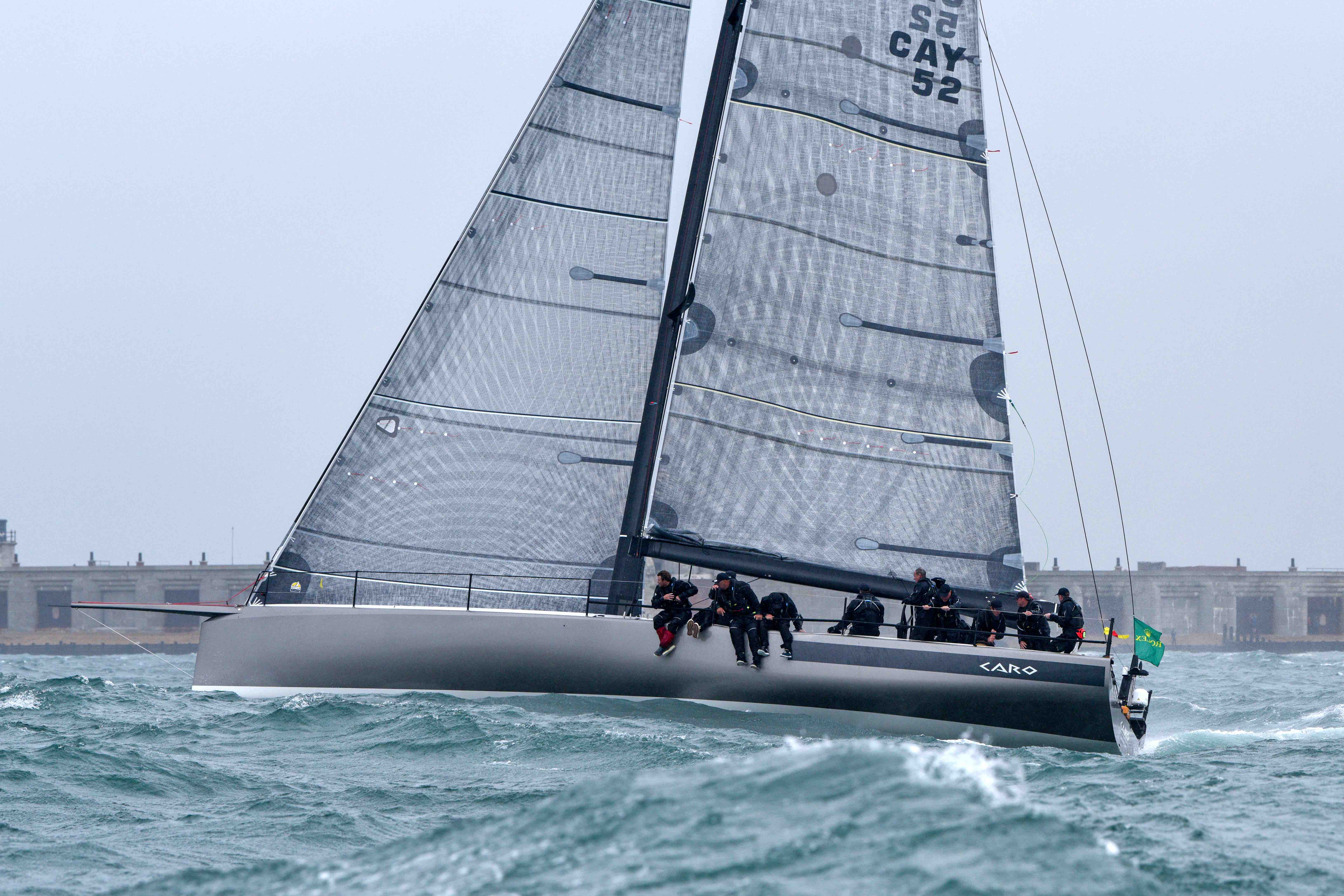 The first 12 hours of the race were bruising, with winds gusting close to 40 knots and boat-breaking seas off the south coast of England © Rick Tomlinson/www.rick-tomlinson.com
The first 12 hours of the race were bruising, with winds gusting close to 40 knots and boat-breaking seas off the south coast of England © Rick Tomlinson/www.rick-tomlinson.com
“The 50-footers are so competitive now and the racing is so close,” said Klink, mindful of how close they might have been to suffering a similar fate as Rán 8, former Fastnet winner Niklas Zennström’s CF520 which pulled out of the first race due to structural problems.
“The line [between success and failure], it’s very close. But boats like Caro and Rán are built for the tough conditions. You just have to remember there are times to slow the boat down, not do anything stupid, and that’s where the experience of these guys comes in.
“At one point we just had everyone in the cockpit, no one was hiking. And keeping the boat speed to no more than six knots and trying to just get through this really bad sea state.”
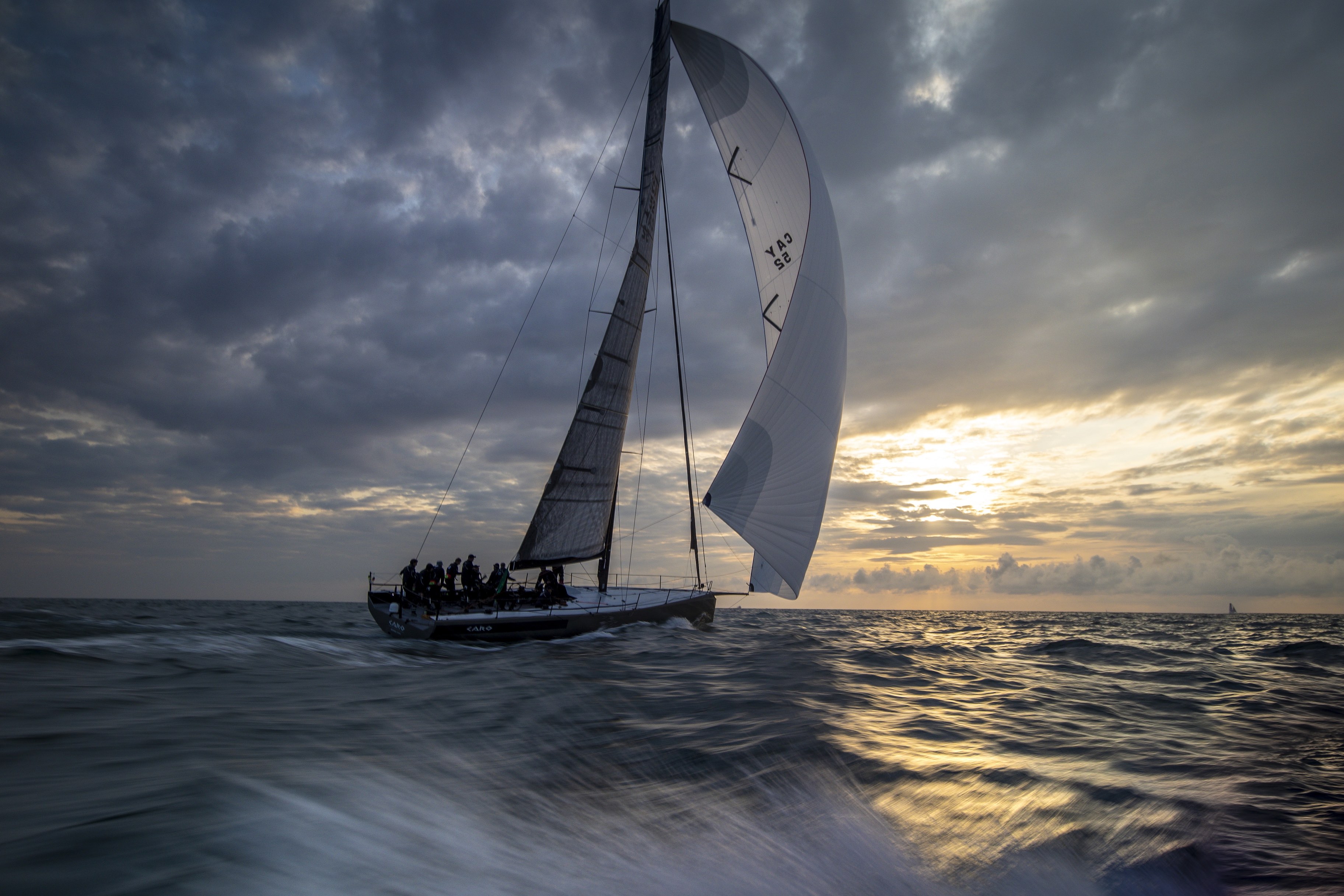 Caro enjoyed a dream run back from the Isles of Scilly © Paul Wyeth/pwpictures.com
Caro enjoyed a dream run back from the Isles of Scilly © Paul Wyeth/pwpictures.com
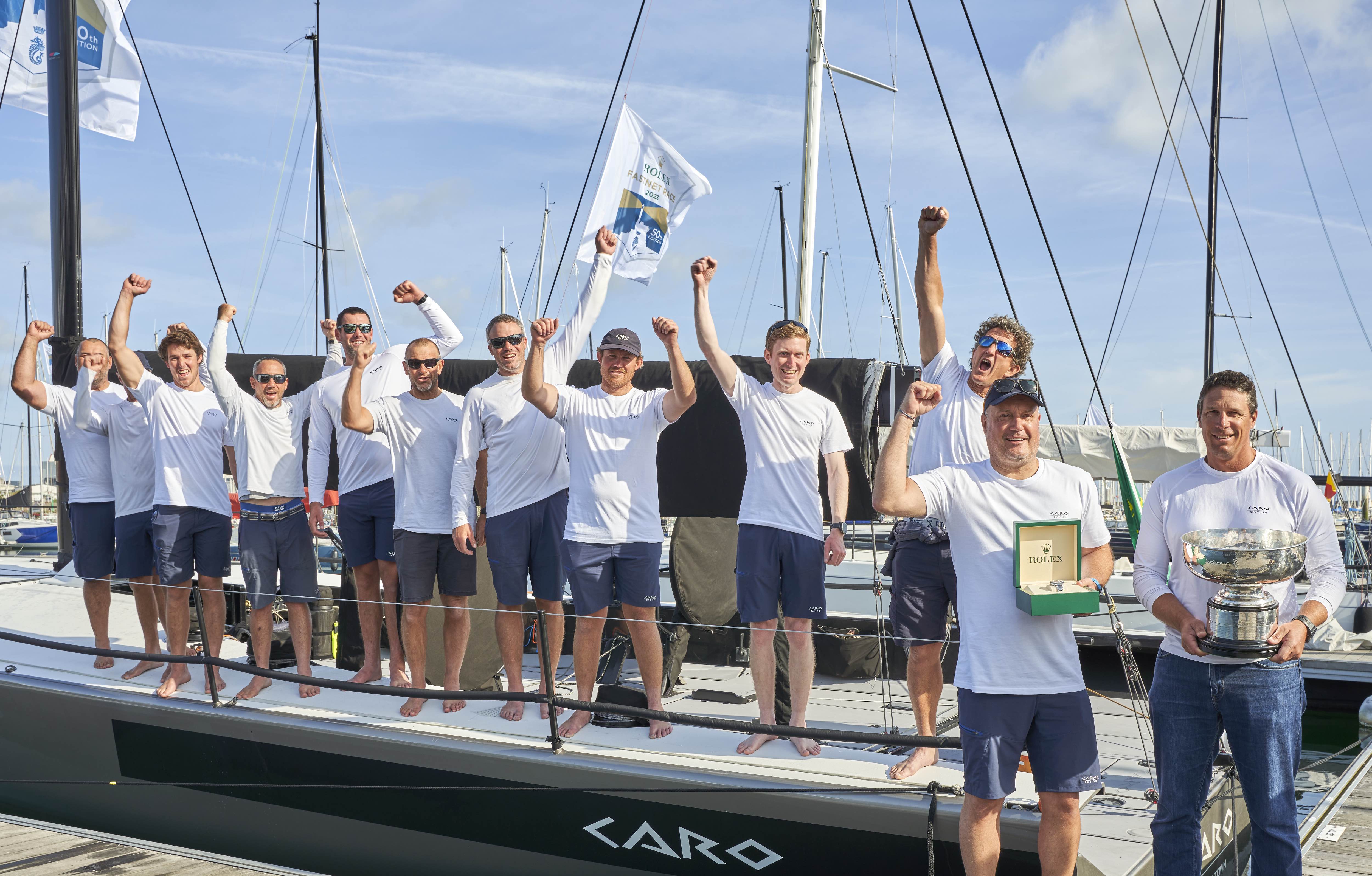 Winning the Fastnet Challenge Cup was the culmination of months of preparation and training © ROLEX/Carlo Borlenghi
Winning the Fastnet Challenge Cup was the culmination of months of preparation and training © ROLEX/Carlo Borlenghi
Tactician Adrian Stead, twice a winner of the Rolex Fastnet Race with Zennström and past Rán campaigns, hadn’t competed in the race for 10 years. So the British professional was delighted to have come back with another victory. Working with young Australian navigator Andy Green, competing in his first Rolex Fastnet Race, the extensive homework Stead had undertaken in researching the nooks and crannies of the Dorset, Devon and Cornish coastlines more than 20 years earlier for the Admiral’s Cup had come back into play in Caro’s bid to make every second and every inch of the race course count in their favour.
“Things like being in under the Lizard in the back-eddy that might save you five minutes further up the track, we worked hard on those details,” said Stead, who paid tribute to Green’s ability to master the tricky race course at his first attempt. “Andy did great work around the course, particularly through the big current on the final run into the finish.
“Also I think the practice run we did on the Wednesday before the race, out in the Solent in 25 knots of breeze, that was a useful preparation for everyone on the team to get our heads in the game. Practising the starting, and then a full circuit of the Isle of Wight, a good seven-hour shakedown for all of us and the boat.” The multiple dummy runs at the start paid off with an excellent start out of the Cowes line last Saturday. “We had all our rivals under control out of the start and it’s always good for the team spirit when you’re leading out of the Solent,” said Stead. “But then we lost the wand off the top of the mast in the Portland tidal race and we lost all our wind instruments, so we were running blind.” Then, when the bowman went up the rig to replace the wand, he discovered the cable had been mashed due to the earlier breakage, so the crew had to complete the rest of the race sailing by the seat of their pants, without critical instruments and mostly data-free.
However, Stead admits they had the dream run back from the Isles of Scilly.
“We pretty much straightlined it all the way and we realised we had a very good shot at winning IRC Zero so pulled out all the stops, got out some extra chocolate bars and had everyone hiking hard on the rail for the last few hours into the finish. We were fortunate how the weather worked out for us, but I think we did a great job of preparation and keeping ourselves in the game for as long as possible and we are so pleased how it all paid off.”
The winning crew on Caro are: William Parker, Wade Morgan, Ryan Godfrey, Justin Ferris, Jono Swain, James Paterson, Harry Hall, Cian Guilfoyle, Andrew McCorquodale, Andy Green, Adrian Stead and owner Max Klink.
By Andy Rice
